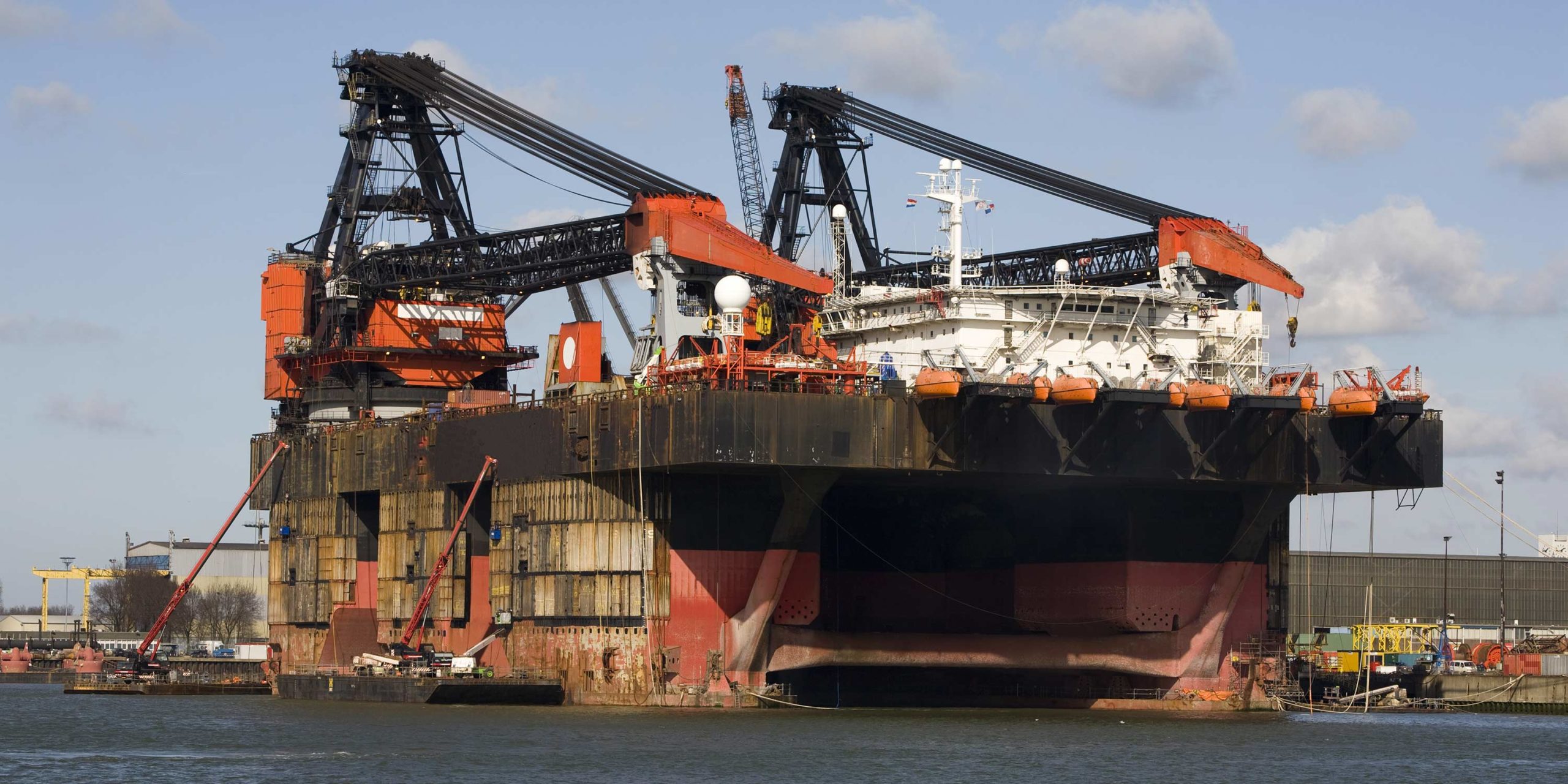Next week, Manchester will host the annual Total Decom event, providing a chance for industry players to meet and discuss the current state of the nascent oil & gas decommissioning market in the North Sea. Douglas-Westwood’s own Ben Wilby will be joining a wide range of speakers at the event, presenting DW’s recently released market forecast to an array of industry players.
The report considers the potential market for decommissioning in the UK, Norway, Denmark and Germany over the period 2016-2040 – forecasting the number of wells and platforms to be removed and the cost of this work. This is split into two scenarios, one of which focuses on the impact of single lift vessels such as the Pioneering Spirit that have the potential to save operators around $12bn. However, this figure is highly contingent upon a number of factors, including the vessel day-rate and the success of early jobs, especially the Brent Topside removal project which will see the heaviest topside lift undertaken when work starts.
Despite the negativity that is typically associated with large scale decommissioning work, it represents a huge opportunity for a variety of different companies. Firms stand to benefit from the coming decommissioning boom, providing they are prepared for the work that will have to be undertaken. Chief among those that stand to benefit are subsea plugging & abandonment (P&A) specialists. Both the UK and Norway have a large number of subsea wells, the majority of which will stop production over the forecast period and require plugging and abandonment. As a result the companies that are able to provide this service will be in high demand.
Subsea P&A work requires specialised vessels and equipment and as a result there is the potential for companies to develop strong reputations at the beginning of the forecast that will keep them in high demand throughout the forecast period. Due to these requirements there may also be undersupply and delays for companies desperate to P&A wells to get a liability off of the books, with too few vessels available for the amount of work that is required.
It is pertinent to state that operators in the North Sea have known for many years that decommissioning work will have to be completed at some point, the question is, have we reached it? The low oil price, high maintenance costs and the general maturity of the region as a production hub means that the point where projects are uncommercial has already arrived for a large number of projects. As a result, operators should be focusing on working on improving and introducing new methods of decommissioning that mean jobs can be completed economically, quickly and safely.







